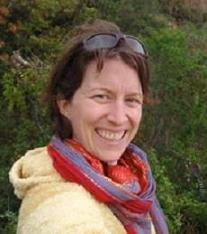The Baker’s Dozen: Key Nations Can and Should Act Together to Prevent Further Dangerous Climate Change
Main Article Content
Abstract
Article Details
Articles in IGJR are being published under the Creative-Commons License "CC 4.0 BY". On the basis of this license, the article may be edited and changed, but the author always has to be credited for the original work. By sending your article to IGJR, you agree to the publication of your article under this license. Please contact us if you do not want to have your article be published under CC 4.0 BY.
References
Aldy, Joseph E. / Stavins, Robert N. (2007): Architectures for Agreement. Addressing Global Climate Change in the Post-Kyoto World. Cambridge, UK: Cambridge University Press.
Barrett, Scott (2001): International Cooperation for Sale. In: European Economic Review. Vol. 45 (10/2001), 1835-1850.
Barrett, Scott (2006): Environment and Statecraft. The Strategy of Environmental Treaty-Making. In: Journal of International Relations and Development. No. 9, 103-6.
Den Elzen, Michel / Meinshausen, Malte (2006): Multi-Gas Emission Pathways for Meeting the EU 2 Degree C Climate Target. In: Schnellnhuber, Hans Joachim. / Cramer, Wolfgang P. / Nakicenovic, Nebojsa / Wigley, Tom / Yohe, Gary (eds.): Avoiding Dangerous Climate Change. Cambridge, UK: Cambridge University Press.
Electric Power Research Institute (2007): The Power to Reduce CO2 Emissions. In: Palo Alto.
Hansen, James / Sato, Makiko / Kharecha, Pushker / Beerling, David / Berner, Robert / Masson-Delmotte, Valerie / Pagani, Mark / Raymo, Maureen / Royer, Dana / Zachos, James (2008): Target Atmospheric Co2. Where Should Humanity Aim? In: The Open Atmospheric Science Journal. No. 2, 217-31.
Hoel, Michael (1989): Global Environmental Problems: The Effects of Unilateral Actions Taken by One Country: Bedriftsøkonomisk Institutt.
Luers, Amy / Mastrandrea, Michael / Hayhoe, Katherine/ Frumhoff, Peter (2007): How to Avoid Dangerous Climate Change. A Target for US Emissions Reductions. San Francisco, CA: Union for Concerned Scientists.
Meinshausen, Malte / Hare, Bill / Wigley, Tom / Van Vuuren, Detlef / Den Elzen, Michael / Swart, Rob (2006): Multi-Gas Emissions Pathways to Meet Climate Targets. In: Climatic Change. Vol. 75 (1/2006), 151-94.
Metz, Bert / Davidson, Ogunlade R. / Coninck, Helen D. / Loos, Manuela / Meyer, Leo (eds.) (2005): IPCC Special Report on Carbon Dioxide Capture and Storage. Cambridge, UK and New York, USA: Cambridge University Press.
Metz, Bert / Davidson, Ogunlade R. / Coninck, Helen D. / Loos, Manuela / Meyer, Leo (eds.) (2007): Climate Change 2007: Mitigation of Climate Change. Contribution of Working Group III to the Fourth Assessment Report of the Intergovernmental Panel on Climate Change. Cambridge, UK: Cambridge University Press.
Metz, Bert / Van Vuuren, Detlef P. (2006): How, and at What Costs, Can Low-Level Stabilisation Be Achieved? An Overview. In: Schnellnhuber, Hans. Joachim. / Cramer, Wolfgang P. / Nakicenovic, Nebojsa / Wigley, Tom / Yohe, Gary (eds.): Avoiding Dangerous Climate Change. Cambridge, UK: Cambridge University Press.
Pachauri, Rajenda K. / Reisinger, Andy (2007): Climate Change 2007. Synthesis Report: Contribution of Working Groups I, II and III to the Fourth Assessment Report of the Intergovernmental Panel on Climate Change. Geneva: IPCC.
Parry, Martin L. / Canziani, Osvaldo F. / Palutikof, Jean P. / Linden, Paul V D. / Hanson, Clair E. (eds.) (2007): Climate Change 2007. Impacts, Adaptation and Vulnerability. Contribution of Working Group II to the Fourth Assessment Report of the Intergovernmental Panel on Climate Change. Cambridge, UK: Cambridge University Press.
Posner, Eric A. / Sunstein, Cass R. (2007): Climate Change Justice. In: University of Chicago Law & Economics, Olin Working Paper No. 354 University of Chicago, Public Law Working Paper No. 177.
Posner, Eric A. / Vermeule, Adrian (2003): Accommodating Emergencies. In: University of Chicago, Public Law Working Paper.
Rai, Varun / Victor, David / Thurber, Mark (2009): Carbon Capture and Storage at Scale. Lessons from the Growth of Analogous Energy Technologies. In: Program on Energy and Sustainable Development: Stanford University.
Raupach, Michael R. / Marland, Gregg / Ciais, Philippe / Le Quéré, Corinne / Canadell, Josep G. / Klepper, Gernot / Field, Christopher B. (2007): Global and Regional Drivers of Accelerating CO2 Emissions. In: Proceedings of the National Academy of Sciences. Vol. 104 (24/2007).
Rogelj, Joeri / Hare, Bill / Nabel, Julia / Macey, Kirsten / Schaeffer, Michiel / Markmann, Kathleen / Meinshausen, Malte (2009): Halfway to Copenhagen, No Way to 2 [Deg]C. In: Nature Reports (doi:10.1038/climate.2009.57).
Sands, Philippe (2003): Principles of International Environmental Law. Second Edition. Cambridge, UK: Cambridge University Press.
Smith, Joel B. / Schneider, Stephen H. / Oppenheimer, Michael / Yohe, Gary W. / Hare, William / Mastrandrea, Michael D. / Patwardhan, Anand / Burton, Ian / Corfee-Morlot, Jan / Magadza, Chris H D. (2009): Assessing Dangerous Climate Change through an Update of the Intergovernmental Panel on Climate Change (IPCC) “Reasons for Concern”. In: Proceedings of the National Academy of Sciences. Vol: 106 (11/2009), 4133.
Solomon, Susan / Plattner, Gian-Kasper / Knutti, Reto / Friedlingstein, Pierre (2009): Irreversible Climate Change Due to Carbon Dioxide Emissions. Proceedings of the National Academy of Sciences. Vol. 106 (6/2009), 1704-9.
Solomon, Susan / Qin, Dahe / Manning, Martin / Alley, Richard B. / Berntsen, Terje / Bindoff, Nathaniel L. / Chen, Zhenlin / Chithaisong, Amnat / Gregory, Jonathan M. / Hegerl, Gabriele C. (2007): Climate Change 2007. The Physical Science Basis. Contribution of Working Group I to the Fourth Assessment Report of the Intergovernmental Panel on Climate Change. Cambridge, UK: Cambridge University Press.
Stern, Nicholas (2007): The Economics of Climate Change. The Stern Review. Cambridge University Press.
Sunstein, Cass R. (2009): Minimalism at War. Supreme Court Review.
Victor, David G. (2006): Toward Effective International Cooperation on Climate Change. Numbers, Interests and Institutions. In: Global Environmental Politics. Vol. 6 (3/2006), 90-103.
World Bank (2009): World Development Indicators.World Bank.
World Resources Institute (2007): Earth Trends. World Resources Institute.

